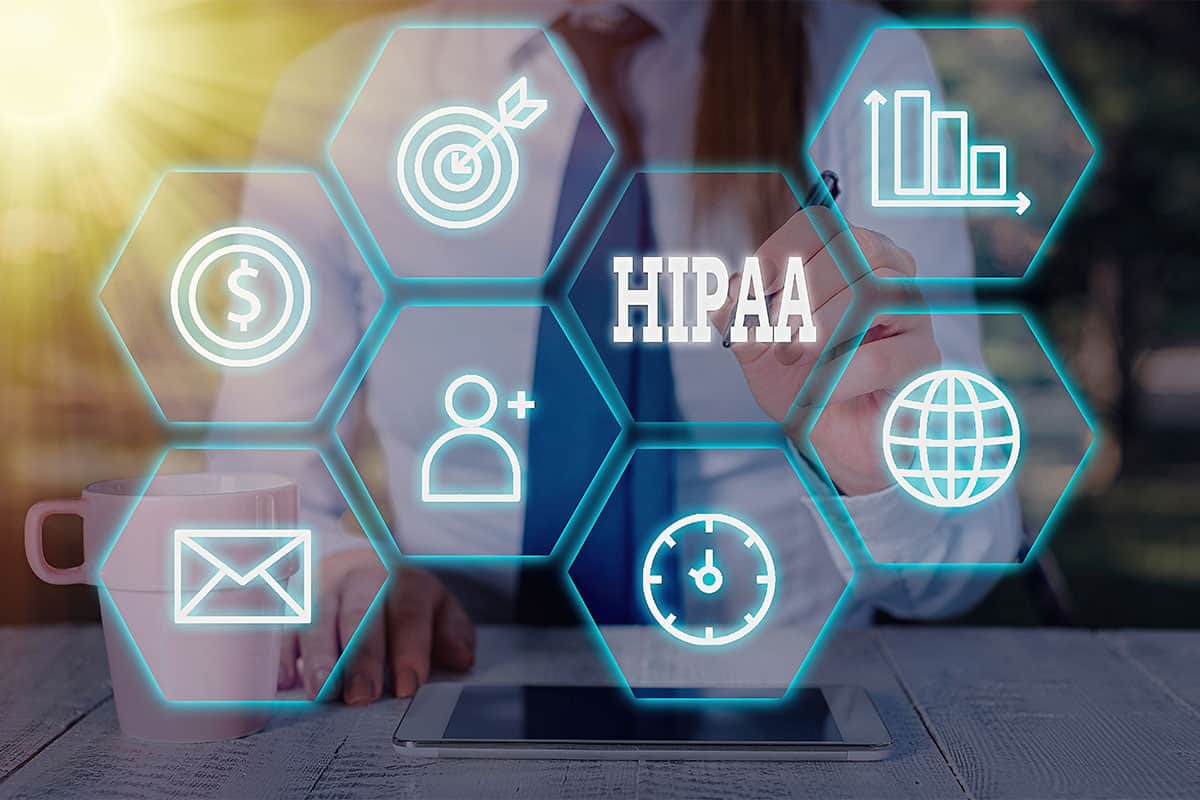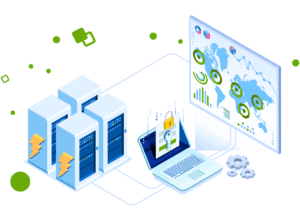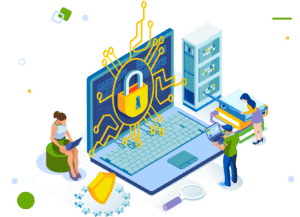Exploring Managed Security Options: How to Protect Data in Governmental Agencies

Cybersecurity for government offices is a critical concern. The protection of public data is essential for maintaining trust and ensuring the smooth operation of government functions. As cyber threats continue to change, adopting managed solutions has become vital for safeguarding sensitive information.
Identifying Cybersecurity Risks in Government Offices
Government offices face unique cyber threats that stem from various vulnerabilities. Common issues include:
- Outdated systems: Many agencies rely on legacy software and hardware, creating openings for cybercriminals to exploit.
- Unsecured IoT devices: The proliferation of Internet of Things (IoT) devices in government operations can lead to weak entry points if not properly secured.
Insufficient employee training exacerbates these risks. Employees often lack awareness about cybersecurity protocols, leading to mistakes that can compromise sensitive data. The consequences of inadequate training can be severe, leaving organizations vulnerable to:
- Insider threats: Employees with access to critical systems may unintentionally—or deliberately—expose data. This internal risk is particularly concerning given the potential for significant damage to public trust and national security.
Addressing these vulnerabilities requires a multifaceted approach. Investment in modern technology and comprehensive employee training programs is crucial for enhancing cybersecurity resilience. By recognizing these risks, government entities can take proactive steps towards safeguarding public data.
Advancing Cybersecurity Infrastructure with Cloud Solutions
Government agencies urgently need to go digital to improve their cybersecurity measures. Traditional systems often fall short against constantly changing threats. By using modern cybersecurity solutions like cloud-based platforms, agencies can greatly enhance their data security.
Cloud solutions can bring the following benefits:
- Scalability: Cloud platforms offer flexible data storage and computing resources that can handle varying workloads efficiently.
- Advanced Security Features: They exceed relevant cybersecurity standards, providing robust encryption and compliance measures essential for safeguarding sensitive public data.
- Real-time Analytics: Utilizing a cloud data platform allows for immediate threat detection and response, crucial in mitigating risks associated with cyber incidents.
The integration of cloud solutions not only modernizes government cybersecurity infrastructure but also significantly reduces the burden on IT staff. As agencies transition to these advanced systems, they enable a more proactive approach to data protection.
Using AI-Powered Security Analytics for Better Threat Detection and Response
AI-powered security analytics is changing the game for cybersecurity solutions in government offices. It offers advanced features that allow for better threat detection and quicker response times. Here are the main benefits:
Better Threat Detection
AI algorithms have the ability to analyze large amounts of data in real-time. They can identify patterns that suggest potential security breaches, allowing government agencies to find unusual activities before they become major threats.
Quicker Response Times
With automated systems in place, immediate response actions can be triggered as soon as suspicious activities are detected. This helps minimize the time it takes to respond, reducing the chances of data loss or disruption to operations.
Continuous Learning
Machine learning models have the capability to adapt and improve over time. This means they can refine their skills in identifying new and emerging threats. Even as cybercriminals change their tactics, AI systems will continue to stay one step ahead, ensuring strong defenses.
Better Use of Resources
By automating routine security tasks, government agencies can make better use of their human resources. This allows staff members to focus on strategic initiatives instead of getting caught up in manual monitoring processes.
Establishing Comprehensive Data Security Practices Beyond Technological Measures
Implementing robust data security practices extends beyond technology alone. It requires a holistic approach that encompasses data governance, threat intelligence, and effective backup strategies.
1. Data Governance Policies
- Establish clear policies that dictate how data is collected, stored, accessed, and shared.
- Ensure compliance with regulations like HIPAA to protect sensitive information.
- Regularly review and update these policies to address evolving threats.
2. Dynamic Threat Intelligence Mechanisms
- Utilize real-time threat intelligence to stay ahead of potential cyber threats.
- Integrate threat intelligence feeds into security operations for proactive incident response.
- Foster collaboration with other government agencies to share insights on emerging threats.
3. Effective Backup Strategies
- Implement regular data backups to safeguard against data loss from cyber incidents such as ransomware attacks.
- Utilize both on-site and cloud-based backup solutions to ensure redundancy.
- Test backup systems regularly to confirm data integrity and recovery capabilities.
Enhancing Cybersecurity in Government Agencies Through Managed IT
Outsourcing IT management to a trusted provider can significantly bolster network security measures in government offices. Managed IT services offer tailored solutions that address specific problems, including:
Ransomware Attacks
These attacks encrypt critical data, demanding payment for recovery. Managed service providers (MSPs) implement robust security protocols, including real-time monitoring and advanced threat detection systems. This proactive approach helps prevent ransomware incidents before they escalate.
Supply Chain Attacks
Government agencies often rely on third-party vendors for various services. MSPs assess the security posture of these suppliers, ensuring that any weaknesses are addressed. By integrating strong vendor management practices, agencies can mitigate risks associated with compromised supply chains.
Continuous Monitoring and Support
24/7 surveillance of networks is essential in identifying and responding to threats swiftly. MSPs provide constant oversight, allowing government entities to focus on their core missions while ensuring cybersecurity remains a priority.
Compliance and Best Practices
Many managed IT services offer expertise in regulatory requirements, ensuring adherence to standards like HIPAA. This compliance safeguards public data while enhancing trust with citizens.
Improving Operational Efficiency with Managed Solutions While Ensuring Regulatory Compliance
Transitioning to managed IT services can significantly enhance security and efficiency in government operations. By adopting these solutions, agencies can:
Optimize Resources
MSPs help streamline IT processes, allowing government entities to allocate resources more effectively. This results in reduced overhead costs and enhanced productivity.
Extend Technology Lifespan
Regular updates and maintenance provided by MSPs ensure that government technology remains current, reliable, and secure. This proactive approach decreases the likelihood of system failures and data breaches.
Establishing best practices tailored towards compliance with regulations is crucial for protecting public data. Key measures include:
- Regular Audits: Conducting consistent assessments of data handling practices helps identify vulnerabilities and areas needing improvement.
- Employee Training Programs: Educating staff on compliance requirements ensures that everyone understands their role in maintaining data security.
- Incident Response Plans: Developing clear protocols for potential breaches allows agencies to react swiftly, minimizing damage and maintaining public trust.
Implementing these strategies not only secures sensitive information but also fosters a culture of accountability within government operations.
Essential Features in Managed IT Service Providers for Government Entities
Choosing the right MSP is crucial for government entities aiming to enhance their cybersecurity posture. Key features to look for include:
- 24/7 Monitoring: Continuous surveillance of systems and networks ensures immediate detection of anomalies. This round-the-clock support is essential for responding swiftly to potential threats.
- Predictable Budgets: Managed services typically offer fixed pricing models, allowing government agencies to allocate resources effectively. This predictability helps in planning budgets without unexpected expenses.
- Advanced Cybersecurity Solutions: Reputable MSPs provide specialized cybersecurity solutions tailored for government offices. These may include firewalls, intrusion detection systems, and regular security audits.
- Scalability and Flexibility: MSPs should offer services that can scale with the changing needs of government operations. This flexibility is vital for adapting to evolving threats and mission requirements.
- Compliance Assurance: Ensuring adherence to regulations is a vital feature of managed services. Providers must demonstrate their capability to maintain compliance while safeguarding sensitive data.
Cybersecurity as a Core Component of Government Operations with Managed Services
Government agencies face increasing cyber threats that can endanger public data and trust. To tackle these challenges, it’s crucial to prioritize cybersecurity measures. Here are some strategies to consider:
Leverage Modern Technologies
Utilize advanced tools such as cloud platforms and AI analytics to enhance security infrastructure. These technologies provide scalable solutions that adapt to evolving threats.
Partner with Reliable Managed Service Providers
Collaborating with trusted MSPs allows government offices to access specialized expertise in cybersecurity solutions tailored for public data security. These partnerships can significantly improve threat detection and response capabilities.
Strengthen Organizational Defenses
Implement proactive strategies to fortify defenses against potential breaches. Regular assessments and updates to security protocols ensure readiness against sophisticated attacks.
Maintain Public Trust
Effective data protection strategies not only safeguard sensitive information but also uphold public confidence in government operations. Transparent communication about security measures reinforces trust among citizens.
Prioritize Secure Operations with Managed Solutions
Cybersecurity remains a critical aspect of government operations. Ensuring the secure handling of public data is essential not only for the integrity of services but also for maintaining public trust.
Key benefits of utilizing managed solutions include:
- Enhanced Security: Managed service providers offer advanced cybersecurity measures tailored to meet specific governmental needs.
- Proactive Monitoring: Continuous monitoring and support help detect threats before they escalate.
- Cost Efficiency: Transitioning to managed services can optimize resources while ensuring compliance with regulations.
Government entities must take proactive steps towards improving their cybersecurity posture. Collaborating with a reliable managed provider can empower agencies to fortify defenses against cyber threats. Embrace these solutions to protect sensitive data and uphold the mission of serving the public effectively.
Frequently Asked Questions About Managed IT
Why is cybersecurity important for government offices?
Cybersecurity is crucial for government offices as it protects sensitive public data from cyber threats and vulnerabilities. With increasing digital transformation, safeguarding this information ensures the integrity and trustworthiness of government operations.
What are common cybersecurity risks faced by government agencies?
Government agencies often face risks such as outdated systems, unsecured IoT devices, insider threats, and insufficient employee training. These vulnerabilities can lead to data breaches and compromise public trust.
How can cloud solutions enhance cybersecurity in government offices?
Adopting cloud-based platforms allows agencies to strengthen their cybersecurity infrastructure. These modern solutions provide scalable security measures that effectively protect sensitive data from emerging threats.
In what ways can AI technology improve threat detection in government cybersecurity?
AI-driven security analytics enhance threat detection capabilities by analyzing vast amounts of data in real-time. This technology expedites response times to potential breaches, allowing government offices to react swiftly to cyber incidents.
What comprehensive practices should be established for securing public data?
Implementing strong data governance policies, dynamic threat intelligence mechanisms, and effective backup strategies are essential practices. These measures create a holistic approach to safeguarding public data beyond just technological solutions.
What features should government entities look for in managed IT service providers?
Key features include 24/7 monitoring, predictable budgeting, and continuous support capabilities. These elements are vital for ensuring robust network security against specific threats like ransomware and supply chain attacks.














